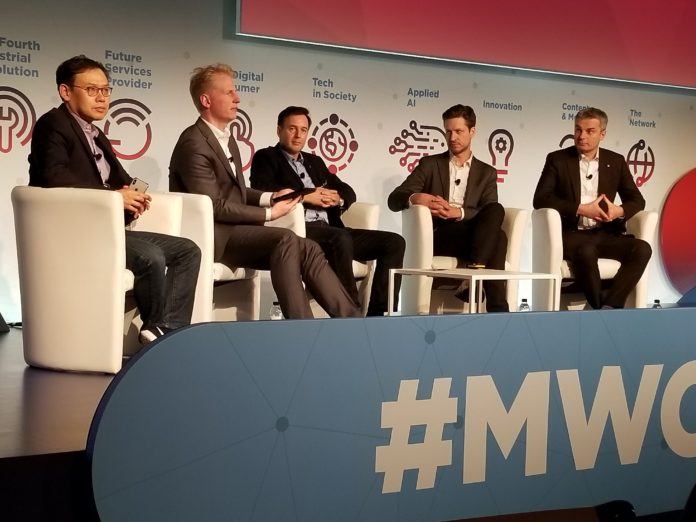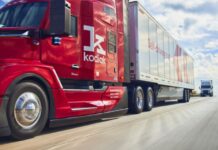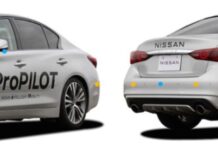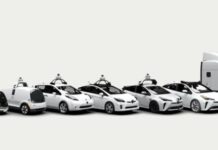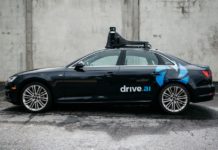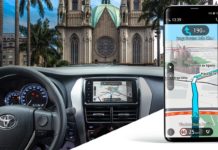BARCELONA—Future rollouts of 5G technology will help speed future transition between connected and autonomous vehicles speakers said at a Mobile World Congress new mobility panel here.
Most, if not all, 5G telco operators are working on automotive projects, said Kang-Won Lee, SK Telecom senior vice president, software research and development. “Here at MWC, every major booth has some sort of car in it,” he said. “With LiDAR, cameras, radar and other sensors, there is not much room for error with [vehicle-to-infrastructure] 4G. 5G has short latency that can stop [an autonomous] car faster if there is an incident.”
Lee said that because there are no 100 percent guarantees in wireless connectivity, current 4G capability is not the best fit for future autonomous vehicles. “The more challenging the system, the more it needs to be controlled by a network. There are no easy answers—even with 5G,” he said. “There needs to be [system] redundancy so multiple systems will have ways to reach the devices on them. While it’s not necessary to have full 5G coverage, and most systems are being tested without it, it gives [companies] better options.”
Lee said that Korea’s K-City, with 360,000 kilometers of space, is the world’s largest test bed site for self-driving cars.
Robo-Taxis Way of the Future…
Robo-taxis, or Uber or Lyft cars without drivers, seemed to be the talk among new mobility providers at both CES and MWC. “Companies are working on a top-down approach on anything to do with robo-taxis. We have identified 42 different use cases for both robo-taxis and [unmanned] vehicles with 8-15 passengers with multiple pickup points that are more flexible than bus service today,” said Kersten Heineke, McKinsey & Company partner, automotive practice. “The robo-taxi and autonomous buses are not in competition as there is a lot of money to be made in both.”
Other big unmanned system markets that Heineke said were going to grow include package delivery, automated trucks and airplane close-and-confined luggage transport. “Truck diving is an unattractive job in both salary and the weekends they have to drive,” he said.
Mobility Services Big at MWC
An executive with the alliance of Renault, Nissan and Mitsubishi said the company views new mobility services as a huge opportunity. “We are taking the opportunity very seriously as we believe it will be 10 percent [of our] revenue by 2030,” said Ogi Redzic, alliance senior vice president for connected vehicles and mobility services.
Redzic said the company is hosting two large autonomous vehicle tests—one in Japan and the other in France. The test in Japan, called Easy Ride, Nissan is working on robo-taxis in Yokohama with DeNA, a Japanese online services provider, he said.
In Europe, where testing centers around Paris and Rouen, the company is partnering with autonomous shuttle operator Transdev.
Redzic kept with his company’s often-quoted estimate that Level 4 and 5 automation for cars will come in 2022. “Navigation will become more informational as we get to Level 4 and 5. It will be ‘what can I do with when I get out of the car,’” he said.
Digital Maps Still the Core of Autonomous Driving…
The rise of autonomous vehicles are having a direct, and significant, impact on how digital maps are being built, said Alex Barth, Mapbox vice president, business development.
“[Autonomous vehicles] will have a profound impact on the map. We are collecting data from 300 million devices a month that drive 225 million miles per day,” he said. “At the end of the day, it’s about how is the scale and how to keep the map fresh. An autonomous car needs to understand, on a more precise level, how to navigate down the road.”
Mapbox, which has relationships with Snap, Tesla, Bosch and the Weather Channel, provides a location platform for developers powering such map applications as large logistics, automotive, mobility and social media applications. “It’s all about how people move in the real world. We are collecting data on 2.6 million miles of paved roads in the United States—and the map connects everything,” Barth said.
The company rolled out a cool augmented reality mapping application at MWC, including a display of the technology at Pepcom’s MobilFocus event. The Reality-grade location data includes a global navigable map that the company said is constantly evolving. Other features include 125 million points of interest from sources including Foursquare, the company said.
Automaker Combining Four Themes for New Mobility
Daimler says new mobility comes down to four themes—connected, autonomous, shared [cars] and services and electric, or CASE, said Harald Rudolph, the company’s head of strategy. “It’s part of the unending struggle to make your car feel like your phone. We are combining the four topics into one—a mobility portfolio with 18 million customers in 100 cities,” he said. “Our aim is to combine the strengths of each and market a new global car taxi at the beginning of the next decade.”
The company displayed its new A Class car, with artificial intelligence features, at MWC. The new car features the MBUX (Mercedes Benz User Experience) infotainment system, which can be individualized for each driver and receives over-the-air updates.
Ethics, Privacy and Competition Issues Surrounding Autonomous Vehicles…So What?
In the mainstream press and academic blogs, critics of autonomous vehicles have said that cars will have to make an “ethical” decision whether to stop for a dog or hit a human, which Redzic scoffs at. “They say, ‘let’s pick a person to kill,’ but it’s not going to work like that. We have no ethical department working on those issues,” he said.
In terms of privacy, it’s still and opt-in world. “Will not give up privacy [through mobility services]. If a person wants to share a car with someone, that’s their choice. A customer can choose what services they want,” Rudolph said.
He also bristled when asked about Tesla’s potential threat to traditional automaker’s hold on the electric vehicle market. “We are making better [electric vehicles] than the ones now out on the street. I don’t think we should be afraid of any competition—they should be afraid of us,” Rudolph said.
In other MWC news:
· The 5G Automotive Association (5GAA) member Ericsson said that 5G will be an integral part of future automotive technology. “Connected and automated driving will lead to a data explosion that will definitely challenge the network capacities,” said Stefano Sorrentino, Ericsson master researcher. “This challenge could be remedied through the deployment of scalable and integrated networks and cloud architectures as well as the continuous evolution of radio technology into 5G.”
· Chinese electric car company Byton did a lot of high-vis advertising at MWC, including banner ads at the Fira Europa train station, where most attendees arrive at the trade show. Is the company saying it will make a presence in 2019 at MWC?



